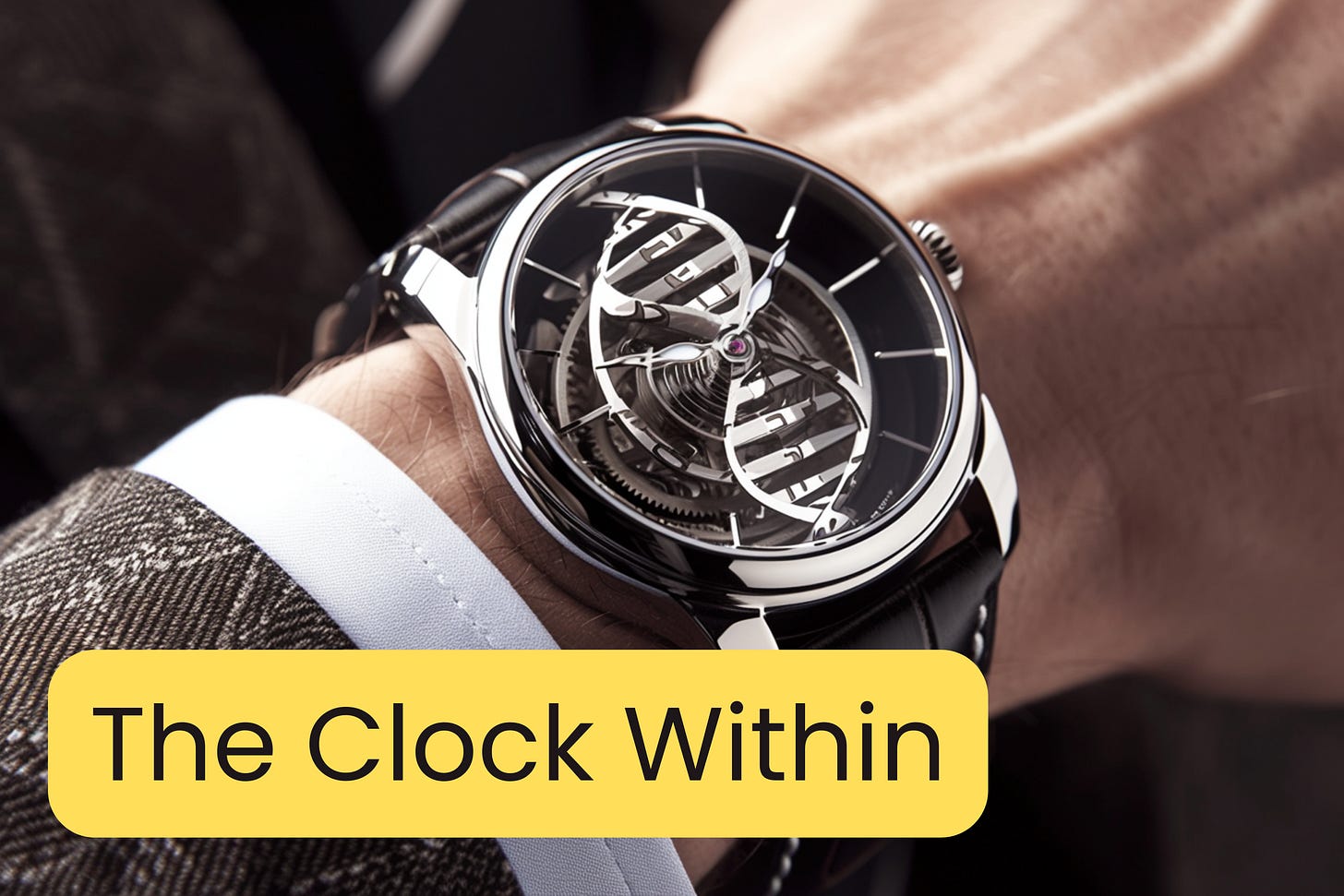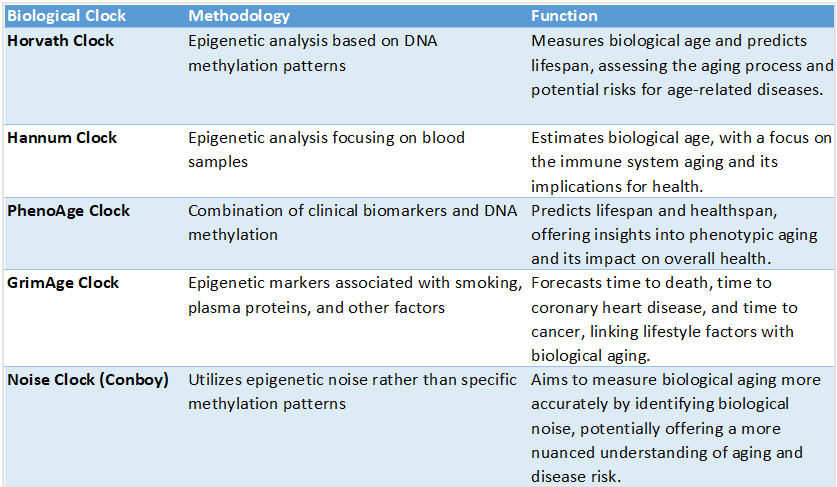The Clock Within
How Our Bodies' Hidden Timers Dictate Health and Longevity
Dive into the fascinating world of aging, where scientists have discovered an internal clock more intricate than any timepiece, embedded within our DNA. This clock doesn't tick-tock with hands and numbers; instead, it operates on a microscopic level, influencing how swiftly we age and our health along the journey.
Epigenetics is the study of how your behaviors and environment can cause changes that affect the way your genes work. Unlike changes to the DNA sequence, epigenetic changes don't alter the DNA itself but instead influence whether genes are turned on or off. These changes can affect health and disease and are influenced by factors like diet, stress, and pollution.
These biological clocks, a recent breakthrough in scientific research, provide insights into our body's true age, which might diverge from the number of candles on our birthday cake. The mechanism behind these clocks involves DNA methylation, which, in simpler terms, is akin to a natural highlighter that marks our DNA over time. These marks don't just sit there; they actively participate in determining how our genes behave as we age.
By analyzing these natural highlights within our DNA, scientists can now forecast not only our lifespan but also the quality of health we might enjoy. These forecasts come from identifying patterns across numerous individuals, revealing how our lifestyle and environment can accelerate or decelerate the biological clock.
It turns out, various factors like diet, exercise, and even the emotional challenges we face can influence how quickly these marks accumulate on our DNA, affecting the speed of our aging process. However, this knowledge also brings hope; understanding that positive lifestyle adjustments can potentially rewind this internal clock, enhancing both our health and lifespan.
The implications of this research are profound, opening doors to personalized medicine where treatments and preventive measures can be tailored based on the insights gained from our DNA's clock. This approach could revolutionize healthcare, focusing on preventing diseases before they occur by understanding the individual's unique biological timeline.
In essence, these biological clocks serve as a reminder that our choices and surroundings have a significant impact on our aging process. They offer a glimpse into how, by paying attention to and potentially adjusting our internal clocks, we could not only extend our lives but also enrich the quality of those extra years, ensuring we make the most out of every moment.





Hi Dominic,
Hope you are well..
I am a subscriber of yours, and I also recommend your newsletter to my subscribers.
I like what you do and enjoy your writing. In fact we are focusing on the same topic - live well and live long. I have enjoyed some of your posts, and particularly found your thytoid post interesting. It was almost funny, as this week I went for a complete thyroid test (TSH, T4, T3, and thyroid antibody). Btw, I will share my results with readers on Tuesday.
My name is Johan, and I am trying to live to become 151 years old. I have been a bit of a health freak all my life, and now at age 45, putting it all into a system.
In short, I try to live by what is scientifically proven to be the way to optimize life- and health-span, such as exercising every day, following a vegan diet, do intermittent fasting every day and a 40 hour fast every week, optimize sleep, no stress, be in mental balance, get enough sun, breathe clean air, drink wanter free of microplastic, etc.
And then I have started measuring what's going on in my body. I have done vitamins and blood tests so far, but will also do tests for minerals, heavy metals, microplastic, hormones, omega 3 vs 6, etc. When I find something that is off, I try to correct it. I share everything with my subscribers.
Amyways, wanted to say things for putting good info out there and keep up the nice work!
Cheers
Johan